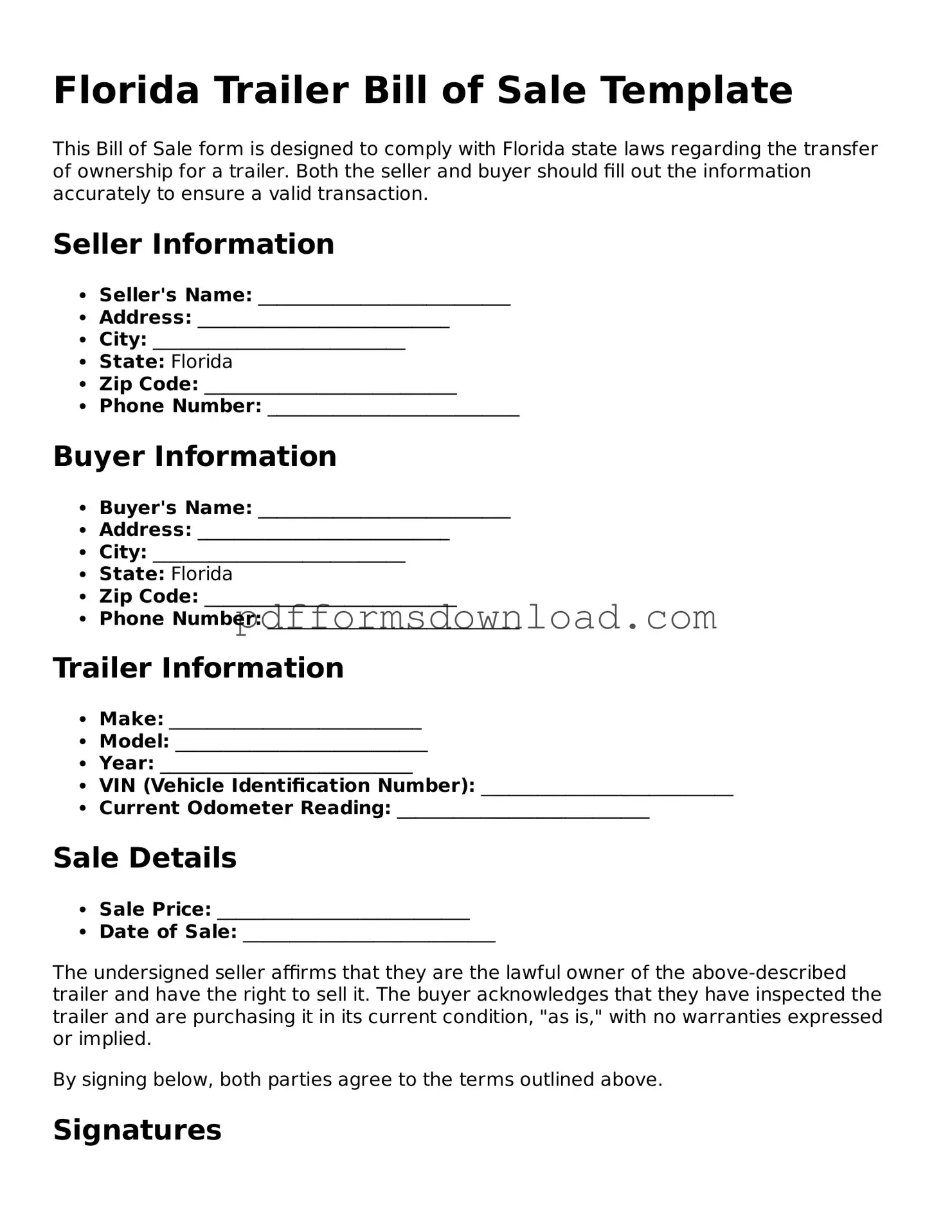What is a Florida Trailer Bill of Sale?
A Florida Trailer Bill of Sale is a legal document used to transfer ownership of a trailer from one person to another. This form provides essential information about the trailer, including its make, model, year, and Vehicle Identification Number (VIN). It serves as proof of the transaction and is necessary for registering the trailer with the state.
Why is a Bill of Sale necessary?
The Bill of Sale is important because it protects both the buyer and the seller. For the buyer, it serves as proof of ownership and can be used to register the trailer. For the seller, it provides evidence that they have sold the trailer and are no longer responsible for it. Additionally, it can help resolve any disputes regarding the sale in the future.
What information is required on the form?
The form typically requires the following information: the full names and addresses of both the buyer and seller, the trailer's details (make, model, year, VIN), the sale price, and the date of the transaction. Both parties should sign the document to validate the sale.
Do I need to have the Bill of Sale notarized?
In Florida, notarization is not strictly required for a Bill of Sale to be valid. However, having the document notarized can add an extra layer of protection and authenticity, especially if there are any potential disputes in the future.
Can I use a generic Bill of Sale for my trailer?
While you can use a generic Bill of Sale, it is advisable to use a specific Florida Trailer Bill of Sale. This ensures that all necessary details specific to trailer transactions are included, which can help avoid confusion or issues during registration.
Is there a fee for registering my trailer after the sale?
Yes, there is typically a fee associated with registering a trailer in Florida. The fee varies based on the weight and type of trailer. It's best to check with your local tax collector's office for the exact amount and any additional requirements.
What if the trailer has a lien on it?
If there is a lien on the trailer, it is crucial to resolve it before completing the sale. The seller must ensure that the lien is paid off and that the lienholder releases the claim on the trailer. This protects the buyer from potential legal issues down the line.
How do I obtain a Florida Trailer Bill of Sale form?
You can find a Florida Trailer Bill of Sale form online through various legal document websites or state government resources. It is important to use a reliable source to ensure that the form complies with Florida laws.
What should I do after completing the Bill of Sale?
After completing the Bill of Sale, both the buyer and seller should keep a copy for their records. The buyer should then take the signed document to their local tax collector's office to register the trailer and pay any applicable fees.
Can I cancel the sale after the Bill of Sale is signed?
Once the Bill of Sale is signed by both parties, the sale is generally considered final. However, if there are extenuating circumstances, such as fraud or misrepresentation, it may be possible to challenge the sale. Consulting with a legal professional may be necessary in such cases.

